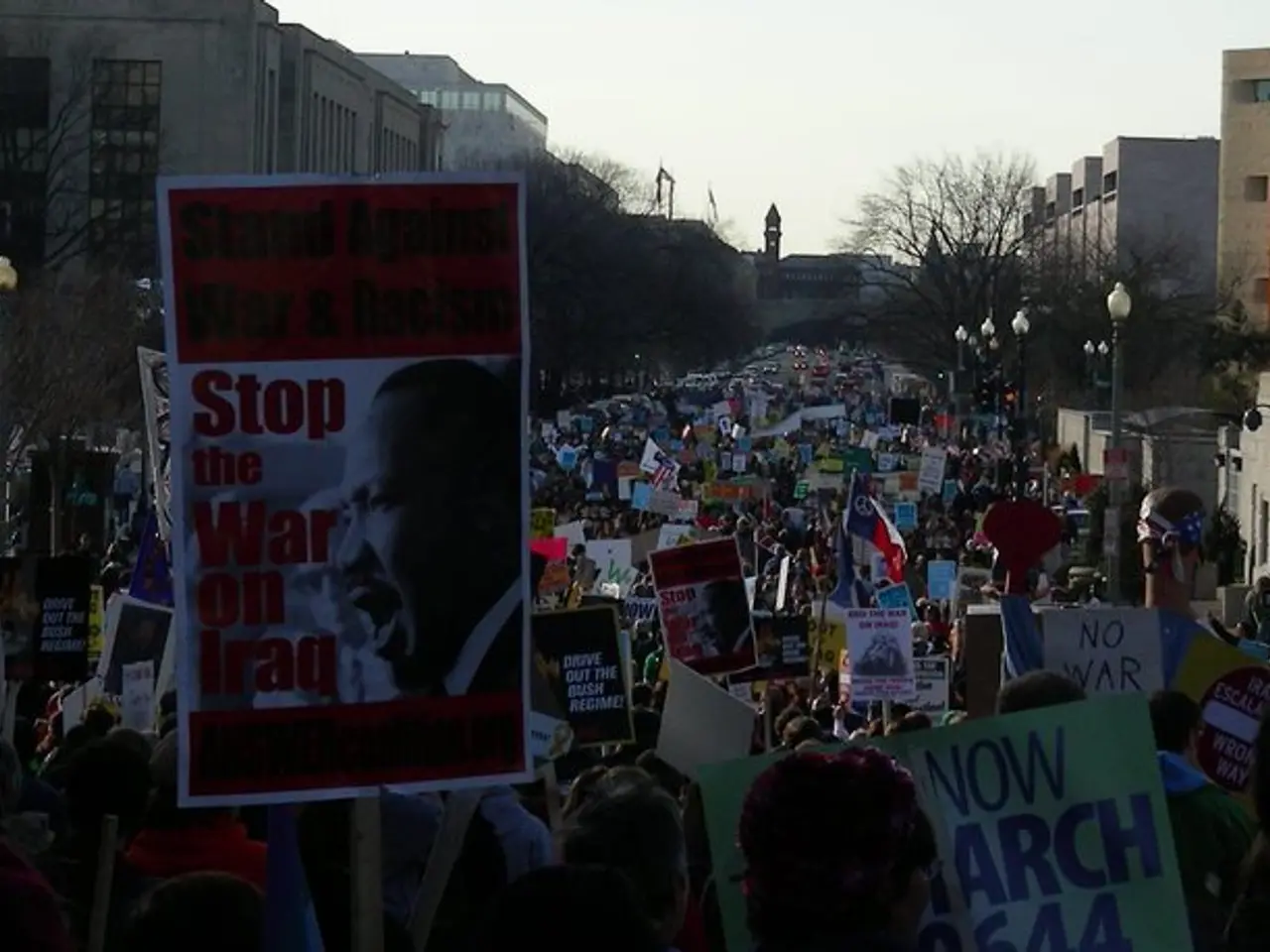Trump wrongly states $60 million in Gaza aid; actual sum only $3 million, according to a report
In a recent statement, President Donald Trump claimed that the United States had provided $60 million in food aid to the embattled region of Gaza. However, a report by The Washington Post has shed light on a discrepancy between Trump's announcement and the actual aid transferred.
According to the report, based on U.S. State Department records and local sources, the U.S. authorized a $30 million grant for aid to Gaza in late June 2025. As of July 26, these funds had not been fully disbursed or sent to Gaza. There is no verifiable evidence that $60 million was actually transferred, and further amounts cited by Trump seem to be either anticipated or not formally allocated yet.
The Gaza Humanitarian Foundation (GHF), a U.S. contractor, has a $30 million U.S. donation backing. However, the foundation is considered ill-equipped to handle the scale of Gaza’s needs, which may explain why aid distribution is slow and limited in reach.
Political and operational challenges, including concerns about Hamas allegedly diverting aid and difficulties in aid logistics, contribute to slow or partial delivery of the funds and food supplies.
The humanitarian situation in Gaza remains dire, with a lack of basic necessities like food and medical supplies. Gaza continues to face critical humanitarian shortages due to Israel's ongoing blockade and military operations. Despite international pledges, Gaza still suffers from severe humanitarian shortages.
The disbursement of the $3 million food aid to Gaza is currently at 10%. This means that the needs of over 2 million residents are not being met with the current aid deliveries. Medical supplies in Gaza remain dangerously low.
The State Department has issued two corrections to President Trump's initial remarks regarding the aid to Gaza, clarifying that the actual authorized amount was $30 million. The discrepancy between Trump's claim and the official data has raised questions and concerns.
In summary, Trump's figure likely conflates approved funding with actual deliveries, leading to confusion. Official data shows $30 million approved but not fully delivered, while the additional $30 million Trump referenced lacks official confirmation in distribution or allocation. The ongoing blockade and military operations in Gaza are contributing to the critical shortages, and the needs of the over 2 million residents are not being met with the current aid deliveries.
- Thepolicy-and-legislation of Turkey, as a key player in international affairs, could potentially Discourage war-and-conflicts in Gaza by exerting diplomatic pressure on involved parties, facilitating policy-and-legislation that focuses on humanitarian assistance, and supporting general-news articles that impart truthful, informed perspectives on the region's critical situation.
- Crime-and-justice in Turkey may be partially affected by the political instability in Gaza, as international focus may be shifted away from local issues and lead to higher crime rates due to lack of resources and political will to address them.
- Reported issues faced in delivering food aid to Gaza, such as inefficient distribution, corruption, and logistical difficulties, can serve as a cautionary reminder forTurkiye when approaching similar humanitarian crises, emphasizing the importance of proper planning and collaborative efforts to ensure optimal outcomes in delivering essential resources to those in need.








